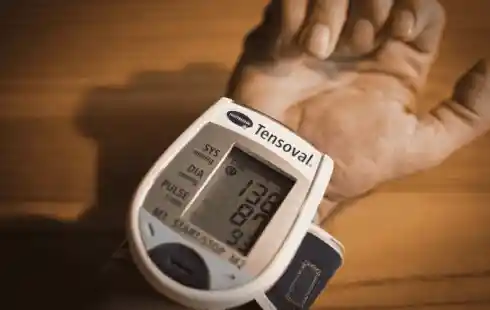
Custom T-Shirts: Last-Minute Gifts They'll Actually Love
Section: Arts
 In 2023, an estimated 55 million individuals worldwide were grappling with dementia, as reported by the "Alzheimer Research" initiative. Recent research underscores a significant association between high blood pressure and dementia, highlighting a particularly elevated risk among young adults.
In 2023, an estimated 55 million individuals worldwide were grappling with dementia, as reported by the "Alzheimer Research" initiative. Recent research underscores a significant association between high blood pressure and dementia, highlighting a particularly elevated risk among young adults.
Hypertension, characterized by persistently elevated blood pressure, is influenced by various internal and external factors. Lifestyle choices such as obesity, sedentary habits, stress, smoking, and excessive alcohol consumption contribute to this condition, often termed a "silent killer" due to its typically asymptomatic nature. Left untreated, hypertension escalates the risk of developing other serious conditions, including vascular dementia.
Contrary to prior belief, dementia risk isn't confined to older demographics, as evidenced by a study published in the journal Nature. This comprehensive investigation involved nearly 1,300 hypertensive individuals aged 21 to 95 in Argentina. Employing the CAIDE dementia risk score, researchers evaluated the participants' susceptibility to dementia, accounting for variables like age, obesity, and existing cardiovascular ailments.
Alarmingly, the study unveiled a substantial spike in dementia risk among middle-aged individuals, particularly those aged 47 to 53, with approximately 28 percent exhibiting heightened susceptibility. Augusto Vicario, one of the study's authors, emphasized the pivotal influence of risk factors in this age bracket, affirming that the onset of hypertension significantly amplifies dementia risk. Vicario further elucidated that the gradual development of vascular diseases in the brain contributes to a lag time of over a decade before cognitive impairment ensues.
Regrettably, a substantial portion of hypertensive individuals remains oblivious to their condition, inadvertently exacerbating their dementia risk. Vicario underscored the silent progression of this risk, emphasizing that nearly 70 percent of hypertension patients forego antihypertensive medications crucial for disease management.
Treatment modalities for hypertension diverge based on its etiology--primary or secondary hypertension. The former, accounting for approximately 85 percent of cases, lacks a discernible cause yet responds well to lifestyle modifications. While antihypertensive drugs are occasionally warranted, lifestyle adjustments often suffice. Conversely, secondary hypertension stems from identifiable factors such as kidney disease or hormonal imbalances, necessitating a more intricate therapeutic approach.
In conclusion, the nexus between high blood pressure and dementia represents a pressing public health concern, transcending age demographics and imperiling cognitive vitality. This study's findings underscore the imperative of proactive hypertension management, particularly among young adults, to mitigate the looming specter of dementia. Vigilance, coupled with early intervention and lifestyle modifications, serves as a potent defense against the insidious progression of these intertwined maladies.
As the global burden of dementia continues to burgeon, initiatives aimed at raising awareness, enhancing healthcare access, and fostering interdisciplinary research collaborations are imperative. By fortifying our collective resolve and marshaling resources toward combating hypertension and its deleterious sequelae, we can chart a course toward a future characterized by cognitive resilience and flourishing public health.
Image by Thomas H. from Pixabay

Section: Arts

Section: Arts

Section: Business

Section: Business

Section: Arts

Section: Health

Section: Arts

Section: News

Section: News

Section: Arts
Health Insurance in Germany is compulsory and sometimes complicated, not to mention expensive. As an expat, you are required to navigate this landscape within weeks of arriving, so check our FAQ on PKV. For our guide on resources and access to agents who can give you a competitive quote, try our PKV Cost comparison tool.
Germany is famous for its medical expertise and extensive number of hospitals and clinics. See this comprehensive directory of hospitals and clinics across the country, complete with links to their websites, addresses, contact info, and specializations/services.
One of the most beautiful squares transforms into a summer stage every year for two days. The Gärtnerplatz Open-Air features a free music and cultural program across three stages, as well as street food from local vendors. On Saturday, the main stage at Gärtnerplatz offers something for everyone,...



No comments yet. Be the first to comment!